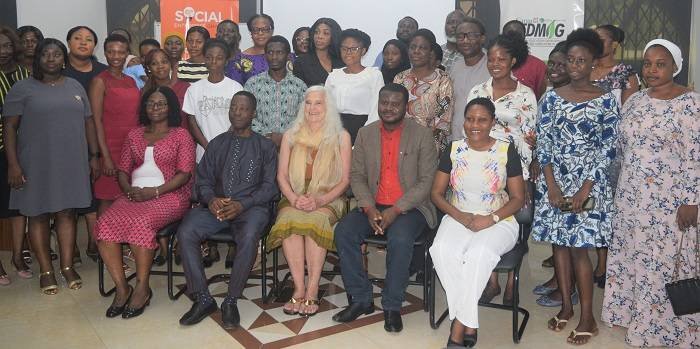Female entrepreneurs from agric colleges empowered

Budding female entrepreneurs drawn from three agricultural colleges in the country have received a day’s capacity training to boost their viability in the sector.
Organised by the University of Saskatchewan (USASK) in collaboration with the University of Ghana, the training forms part of a six-year Technical Education Development for Modernizing Agriculture in Ghana (TEDMAG) project geared towards transforming agriculture education in Ghana.
Participants were selected from the Ejura Agric College and Mechanization Center, Damongo Agricultural College, and the School of Agriculture of the University of Ghana.
In a remark, the Board Chairman for the Agri-Business Incubation Hub for the Agricultural Colleges, Prof. George Oduro Nkansah, explained that the TEDMAG project was a component of the Global Community Service Project (GCSF) project, funded by Global Affairs Canada and implemented by the Ministry of Food and Agriculture (MOFA) to address gender disparities and strengthen female agribusiness initiatives.
He said since its rollout, the project had implemented various activities to promote diversity, gender awareness, and entrepreneurial know-how within the agricultural colleges and the broader sector.
Mr Nkansah mentioned key initiatives including the establishment of student-managed farms, virtual-learning programmes like the “GhanaSim for farm business management”, and the Agribusiness Incubation Hub (Hub).
“These initiatives will hopefully expose students to real-world farming as a business, provide practical entrepreneurial skills, and offer support and networking opportunities for graduating students to design their own agribusiness ventures,” he stated.
Ms. Mariam Ahmed, a beneficiary and graduate from the Damongo Agric College lauded the TEDMAG project which had been of immense benefit to students.
“TEDMAG has been incredibly beneficial to us at the agricultural colleges. Initially, we lacked the fundamentals of agribusiness, however, when TEDMAG stepped in and initiated programmes, our interest in agribusiness grew significantly.”
“Starting your venture is key. Agribusiness thrives on creativity and personal interest. I, for example, have a passion for spices, which led me to venture into that field. My peers are also pursuing different businesses like mushrooms, honey, among others.” she added.
Ms Ahmed encouraged young people interested in agribusiness to pursue it wholeheartedly describing the field as a “viable and rewarding alternative.”
As part of the workshop, a two-weeks mentoring and coaching programme was launched to bring together academia, businesses and community leaders, along with female students from agricultural colleges, to sustain their interest in the field and promote productivity.
Also, 13 students including graduates from the beneficiary institutions presented business plans and display of their products for potential investors.
BY ABIGAIL ANNOH





